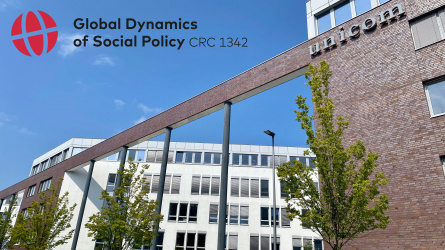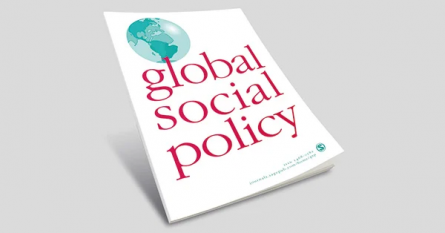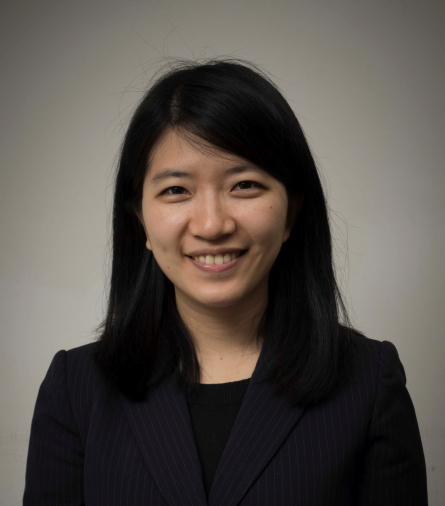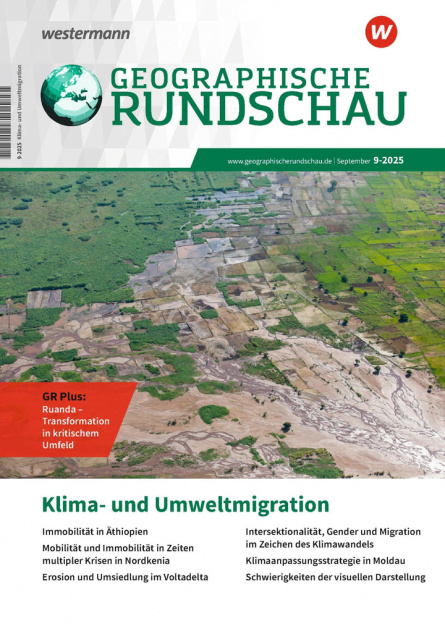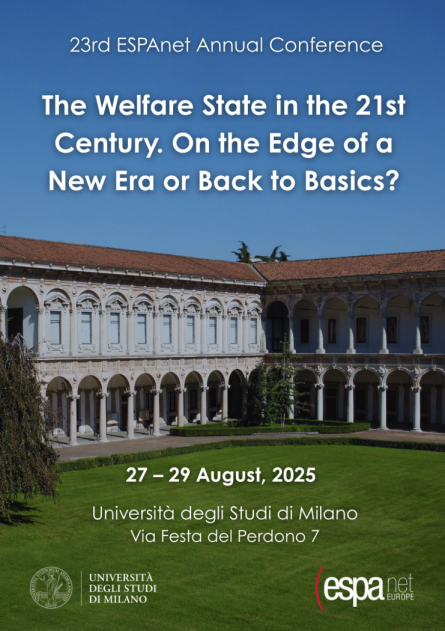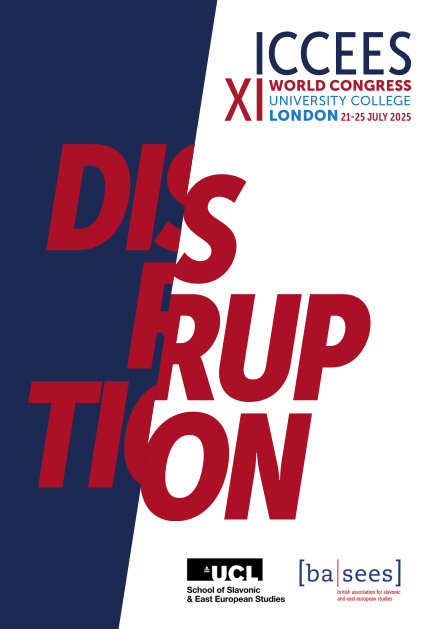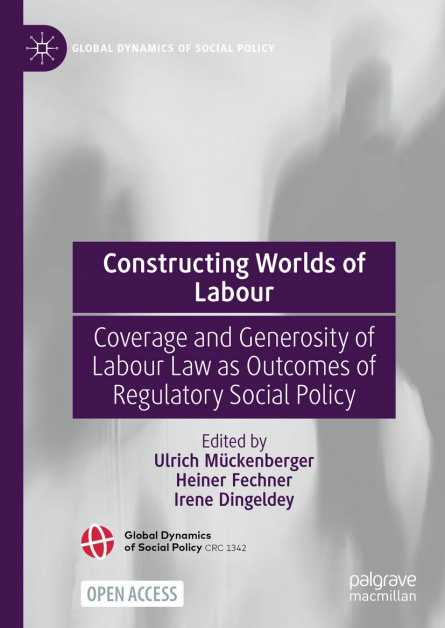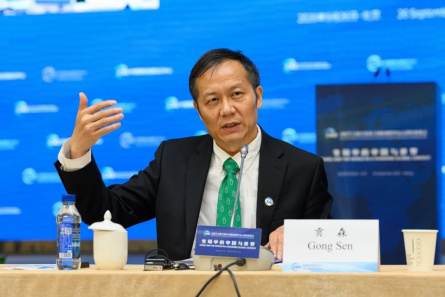Jour Fixe on 15.10.2025Dr. Julia Shu-Huah Wang from National Taiwan University was invited by project B01 "Mechanisms of Social Policy Diffusion" to the University of Bremen for the start of the CRC 1342 Jour Fixe event series in the winter semester 2025/26. On 15 October 2025, she gave a lecture entitled "Social Safety Net Features from a Global Perspective".
Abstract
Introduction: While poverty reduction is a primary objective of the Sustainable Development Goals (SDGs), our understanding of how countries differ in designing social safety nets remains limited. Previous international comparative studies have largely focused on either advanced economies (Gough et al., 1997; Natili, 2020; Nelson, 2012; Marchal & Marx, 2024) or developing countries (e.g., Barrientos, 2013). However, as developing countries rapidly expand their social protection systems and societal challenges increasingly converge across regions, cross-regional comparisons that bridge the Global North and South offer valuable opportunities for mutual learning. This study examines key features of social safety nets in 48 countries across continents. Using newly collected model family data, we compare the generosity levels and family values embedded in social safety net design.
Methods: We use the model family approach to collect income package data for 20 hypothetical household profiles in each of the 48 countries. These profiles vary in income level (e.g., no income, minimum wage, national average wage, and dual earners) and family composition (e.g., single adult, two adults, single parents, and two-parent households with children). Each income package includes labor earnings, welfare benefits, taxes, and social security contributions. Welfare benefits span several categories, including social assistance, housing support, child-related benefits (e.g., child allowances, childcare, and education subsidies), and other targeted subsidies. Data are compiled based on policy rules and government reports in each country. To classify countries, we conduct ward cluster analysis using six indicators across two policy dimensions: generosity across income spectrums: families with no earners, low-wage earners, and average-wage earners; and family values embedded in social safety nets: Individualization, child-focused, and marriage-focused.
Results and Conclusion: Four income-based clusters and three family-value clusters are identified. Specifically, four income-based clusters are: generous for all, generous for lower earnings, generous for average earnings, and least generous. Three family-value clusters are: individualized and pro-marriage, neutral, and child-centered. Results show that more generous welfare systems—whether for all income groups or for lower earners—are significantly less likely to emphasize individualized and pro-marriage values. By contrast, less generous systems are more frequently associated with individualized and pro-marriage orientations or, in some cases, child-centered welfare priorities. Regional patterns show that East Asian societies are generally more generous and pro-child, while most European nations fall into moderately generous and neutral clusters. Developing regions tend to be less generous, yet societies in Latin America, Southeast Asia, and sub-Saharan Africa lean toward individualization, while post-Soviet and Eastern European societies tend toward child-centeredness. Liberal welfare societies such as Australia and the United States fall into the generous-for-lower-income and child-focused clusters. This study reveals distinct configurations in the design of social safety nets. By identifying key safety net patterns, this study contributes to theoretical debates on welfare state variation and provides practical insights for policymakers aiming to evaluate and reform their national safety net systems.
Dr. Julia Shu-Huah Wang is an Associate Professor at Department of Social Work, National Taiwan University. Her research focuses on social welfare policies, poverty alleviation interventions, immigration policies, and the well-being of families. She is currently working on several research projects, including global welfare regimes; social safety nets in East Asia; social welfare policies during COVID-19; impacts of social policies on families; and impacts of migration policies. Prior to joining National Taiwan University, she was an assistant professor at the University of Hong Kong. Dr. Wang received her Bachelor’s degree from National Taiwan University and her PhD degree from Columbia University School of Social Work.
